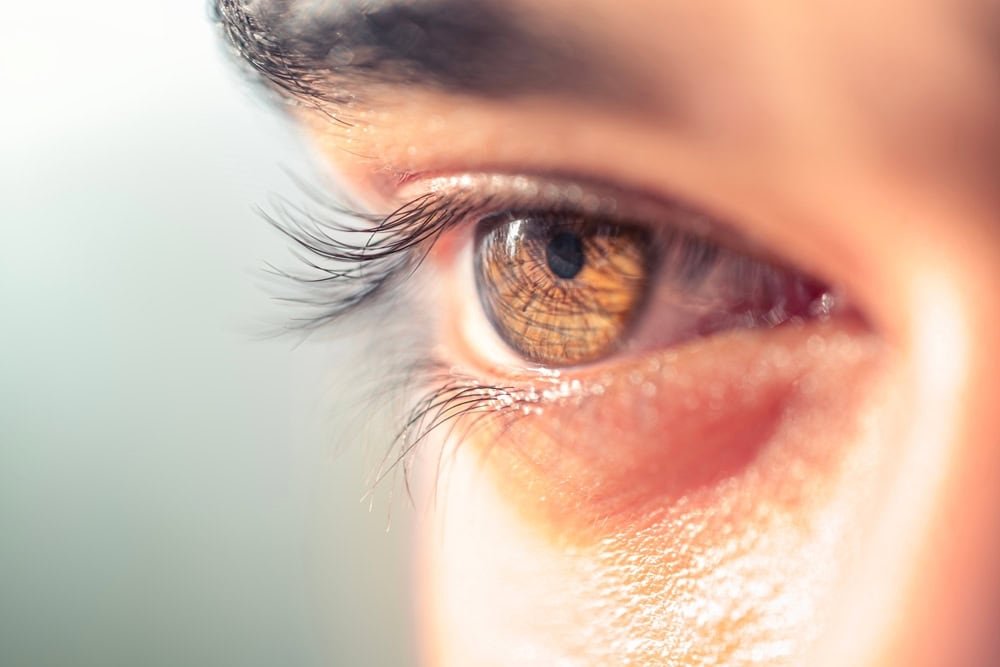
Did you know that diabetes doesn’t just affect your blood sugar? It can also impact your eyes, leading to serious vision problems if not managed properly. High blood sugar levels can damage the delicate structures in your eyes, increasing the risk of certain conditions. But don’t worry—early detection and good diabetes management can help you protect your vision. Here’s a look at four common eye problems that can result from diabetes.
1. Diabetic Retinopathy: The Silent Threat
Diabetic retinopathy is one of the most common eye complications for people with diabetes. It happens when high blood sugar damages the tiny blood vessels in your retina—the part of your eye that processes light. Over time, these blood vessels can leak or become blocked, leading to vision problems.
Symptoms of Diabetic Retinopathy:
- Blurred vision.
- Dark spots or floaters.
- Difficulty seeing at night.
- Sudden vision loss in severe cases.
How to Protect Your Vision:
The best way to prevent diabetic retinopathy is by keeping your blood sugar, blood pressure, and cholesterol levels under control. Regular eye exams are also critical because this condition often has no early symptoms.
2. Diabetic Macular Edema: Swelling in the Retina
Diabetic macular edema (DME) often develops as a complication of diabetic retinopathy. The macula, a part of your retina responsible for sharp central vision, can become swollen due to fluid leakage from damaged blood vessels. This can make it hard to read, recognize faces, or focus on details.
Symptoms of DME:
- Blurred or wavy central vision.
- Colors appearing faded or washed out.
- Difficulty focusing on close-up tasks like reading.
Treatment for DME:
If detected early, treatments like anti-VEGF injections, laser therapy, or corticosteroids can help reduce swelling and protect your vision.
3. Cataracts: Clouding of the Lens
Cataracts are common as we age, but people with diabetes are more likely to develop them earlier and more quickly. Cataracts occur when the lens of your eye becomes cloudy, making it harder to see clearly.
Symptoms of Cataracts:
- Blurry or cloudy vision.
- Sensitivity to bright lights.
- Trouble seeing at night.
- Colors looking less vibrant.
How to Manage Cataracts:
If cataracts start interfering with your daily life, cataract surgery can restore clear vision. This quick, safe procedure replaces the cloudy lens with a clear artificial one.
4. Glaucoma: The Silent Vision Stealer
Glaucoma is another eye condition that people with diabetes are at a higher risk of developing. It occurs when pressure builds up in the eye, damaging the optic nerve. This damage is irreversible, which is why early detection is so important.
Symptoms of Glaucoma:
- Loss of peripheral (side) vision.
- Tunnel vision in advanced stages.
- Eye pain or redness (in some cases).
- Headaches or halos around lights.
Preventing Glaucoma:
Routine eye exams can detect glaucoma early. Treatment options include eye drops, laser therapy, or surgery to manage eye pressure and slow progression.
How Diabetes Impacts Your Eyes
So why does diabetes affect your eyes so much? It’s all about blood sugar. High sugar levels can damage blood vessels and nerves throughout your body, including those in your eyes. Over time, this damage can lead to the conditions we’ve talked about. That’s why it’s so important to control your blood sugar and get regular eye check-ups.
Protecting Your Vision: Tips for People with Diabetes
Control Your Blood Sugar:
Keeping your blood sugar levels in a healthy range is the best way to protect your eyes. Monitor your levels regularly and follow your doctor’s advice on diet, exercise, and medication.
Get Regular Eye Exams:
Schedule a comprehensive eye exam at least once a year, even if you don’t notice any problems. Early detection is key to preventing vision loss.
Manage Blood Pressure and Cholesterol:
High blood pressure and cholesterol can worsen eye problems. Work with your doctor to keep these in check.
Quit Smoking:
Smoking increases the risk of eye diseases, especially for people with diabetes. Quitting can improve your overall eye health.
Know the Warning Signs:
If you experience blurred vision, sudden vision changes, or eye pain, don’t wait—see an eye doctor right away.
Conclusion: Keep an Eye on Your Eyes
Diabetes may increase the risk of eye problems, but the good news is that most of these conditions are preventable or treatable if caught early. By managing your diabetes, staying on top of your health, and getting regular eye exams, you can protect your vision and continue enjoying the world around you.
FAQs
1. Can diabetes cause blindness?
Yes, if left untreated, diabetes-related eye conditions like diabetic retinopathy and glaucoma can lead to blindness. Early detection and treatment can prevent this.
2. How often should I get an eye exam if I have diabetes?
It’s recommended to get a comprehensive eye exam at least once a year. Your doctor may suggest more frequent exams if you already have eye complications.
3. Are eye problems reversible if I control my diabetes?
Some conditions, like cataracts, can be treated with surgery, but others, like diabetic retinopathy, may cause permanent damage if not treated early.
4. Does high blood sugar affect vision temporarily?
Yes, high blood sugar can cause temporary blurry vision by affecting the fluid levels in your eyes. Once blood sugar is controlled, vision often improves.
5. What’s the first sign of diabetic eye disease?
Blurred vision is often one of the first signs, but many people have no symptoms in the early stages. That’s why regular eye exams are so important.
